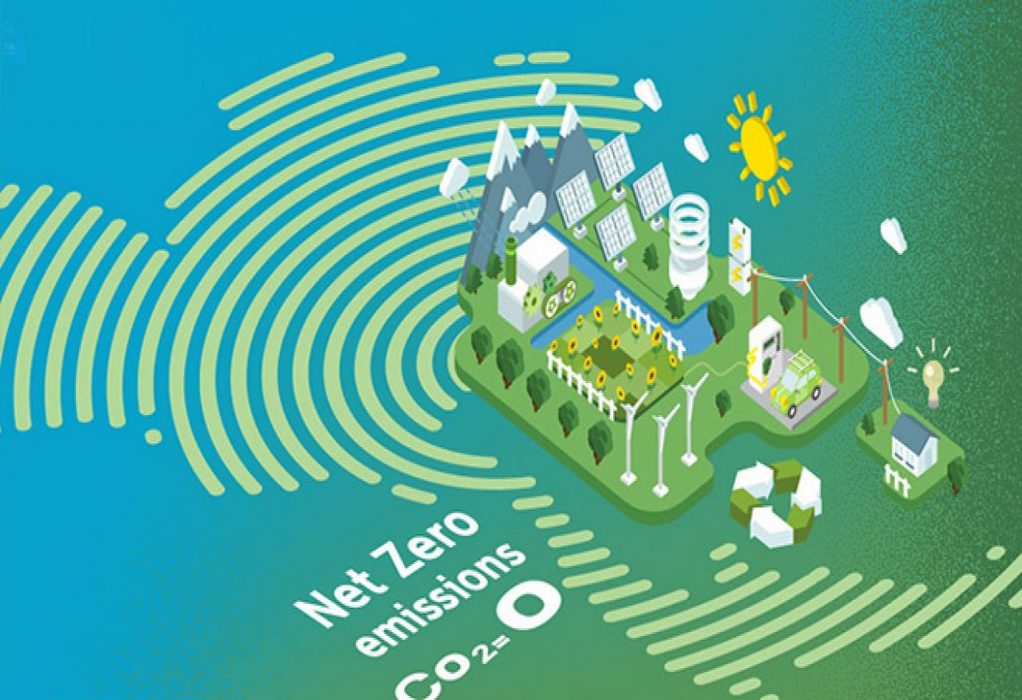AiDash has released its Carbon Offsetting in 2023 study that shares key findings from a global survey of more than 500 senior sustainability officers revealing sustainability strategy, carbon management planning, GHG emissions reporting, and more.
The study found the majority of businesses will struggle to meet netzero goals without the use of carbon credits, but a lack of trust in carbon offsetting options is stalling uptake and pushing corporate net-zero plans off track. Sustainability and carbon management are now mainstream concerns, with 97% of businesses including them in investment decisions and 79% of chief sustainability officers (CSOs) already accountable to their boards or the public. Moreover, 98% of CSOs are doing more than legally required to reduce emissions and 56% of businesses are committed to net-zero targets by or before 2030.
However, over half of businesses (56%) do not have operational control over the majority of their greenhouse gas (GHG) emissions, and nearly half (43%) use carbon offsets for hard-to-reduce GHG emissions alongside direct measures. As a result, many businesses cannot meet net-zero targets without the use of carbon credits. Despite this critical need, the survey revealed a major lack of trust in carbon offsetting, with 41% of CSOs stating they do not use carbon credits as they do not adequately trust them. This comes at a time when many carbon offsetting projects are being shown to be inconsistently measured, inadequately monitored, and frequently failing to prove they are based on additional carbon captured.
Another revelation is the inconsistency in validation methods for carbon credits as 4% of CSOs do not utilize credits at all. Meanwhile, 35% of them only buy from government or voluntary certified schemes, 43% are exploring working with credit rating agencies, 35% undertake their own validation or third-party due diligence, and 41% use a combination of these methods. This lack of uniformity raises doubts surrounding the accuracy and comparability of corporate sustainability measurements.
With 89% of CSOs confirming they use KPI metrics to track the progress of their sustainability plans, it is essential that those metrics are accurate. However, the three biggest challenges to meeting net-zero goals are all data related:
- Collating reference data such as regional electricity and airline emissions factors (26%)
- Lack of common reporting frameworks (19%)
- Difficulty collating internal information (18%)
Carbon offsetting was not the only key finding of the survey but it also revealed that CSOs are turning their eyes toward biodiversity. While only 24% of CSOs currently include biodiversity impact in their sustainability strategies, 66% already have a role dedicated to biodiversity, with a substantial proportion intending to introduce one in the next two years. However, as it stands, legacy approaches to measuring biodiversity could hamper progress.
“Advances in satellite and AI technology can solve the vast majority of issues businesses are having collecting, analyzing, and verifying their sustainability data,” continues Singh. “Our carbon management solution not only provides measurements that meet carbon credit standards, but also continuous evidence to prove that credits are based on additional carbon captured and that it remains permanently in the ground, which is crucial for credible ESG reporting. By supporting how businesses apply carbon offsetting to their own land, we can save them up to 90% when compared with buying the equivalent from an escalating carbon credit market. For biodiversity, AiDash’s Intelligent Sustainability Management System (ISMS) can measure a host of complex environmental assets, allowing businesses to enhance natural capital metrics such as pollination, recreational benefits, and the value of food production. By analyzing thousands of sites in a matter of weeks, and utilizing one ecologist to verify the data captured, the AiDash solution can reduce biodiversity management operational expenditure by up to 75%, helping businesses adhere to impending legislation in the US, Europe, and UK.
Tags: AiDash, GHG Emissions, NetZero, Sustainabilty



Recent Posts
ZeroNorth’s SMARTShip platform integrates with ClassNK MRV portal to automate emissions reporting
Towngas Partners with TLB, Pacific Basin to Advance Green Marine Fuel Infrastructure in Hong Kong
SECI Extends Bid Deadline for Green Ammonia Tender Under SIGHT Scheme
Greenzo Energy Bags ₹320 Cr Order from Oswal Energies for 20 MW Green Hydrogen Plant in Gujarat
Toyota Kirloskar and Ohmium International Join Forces to Develop Green Hydrogen Solutions in India
EST-Floattech Expands Octopus Series with Lithium Iron Phosphate Battery Modules
PowerCell’s Marine System 225 receives Type Approval from Lloyd’s Register
Echandia Secures SEK 325 Million in Funding to Advance Maritime Electrification